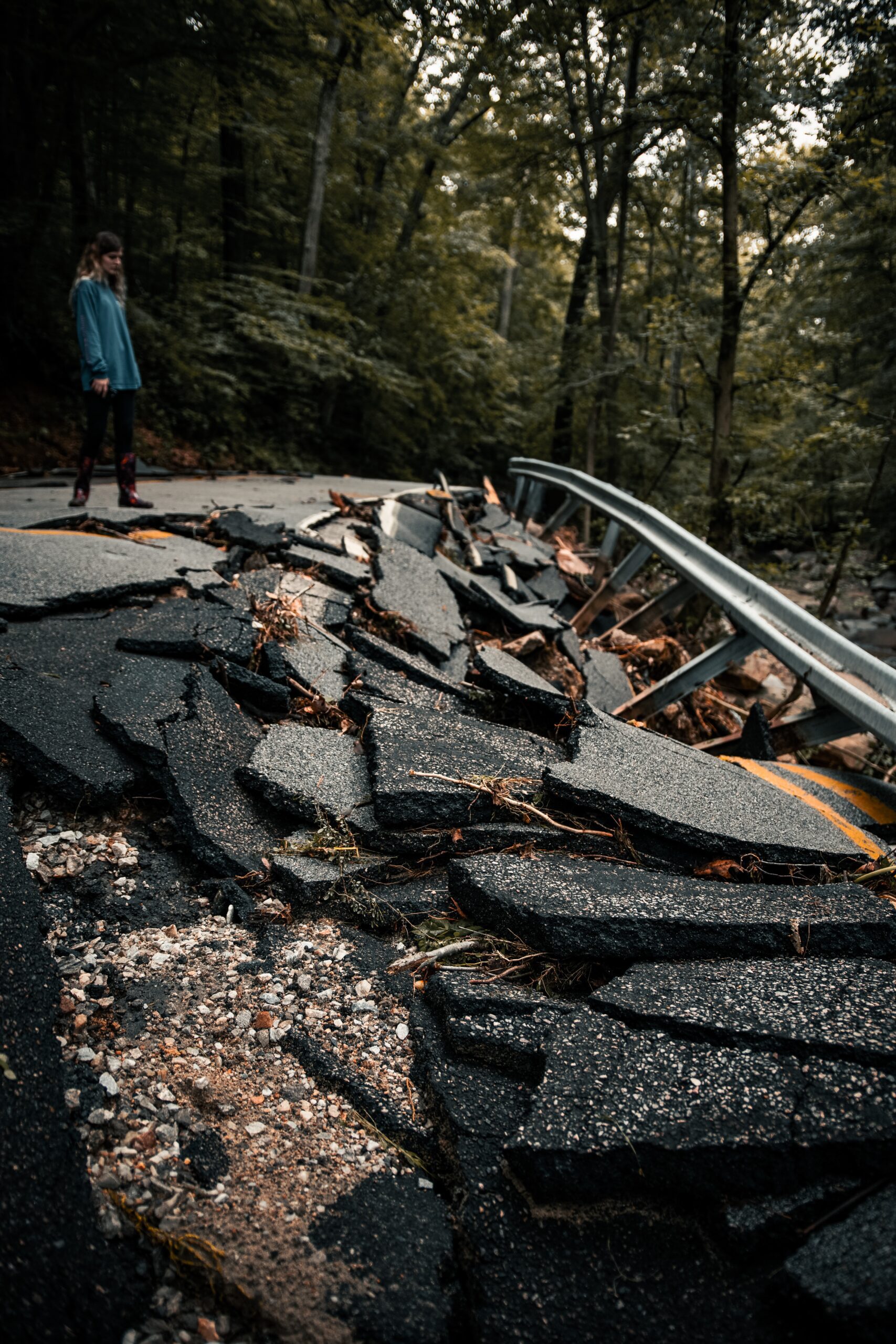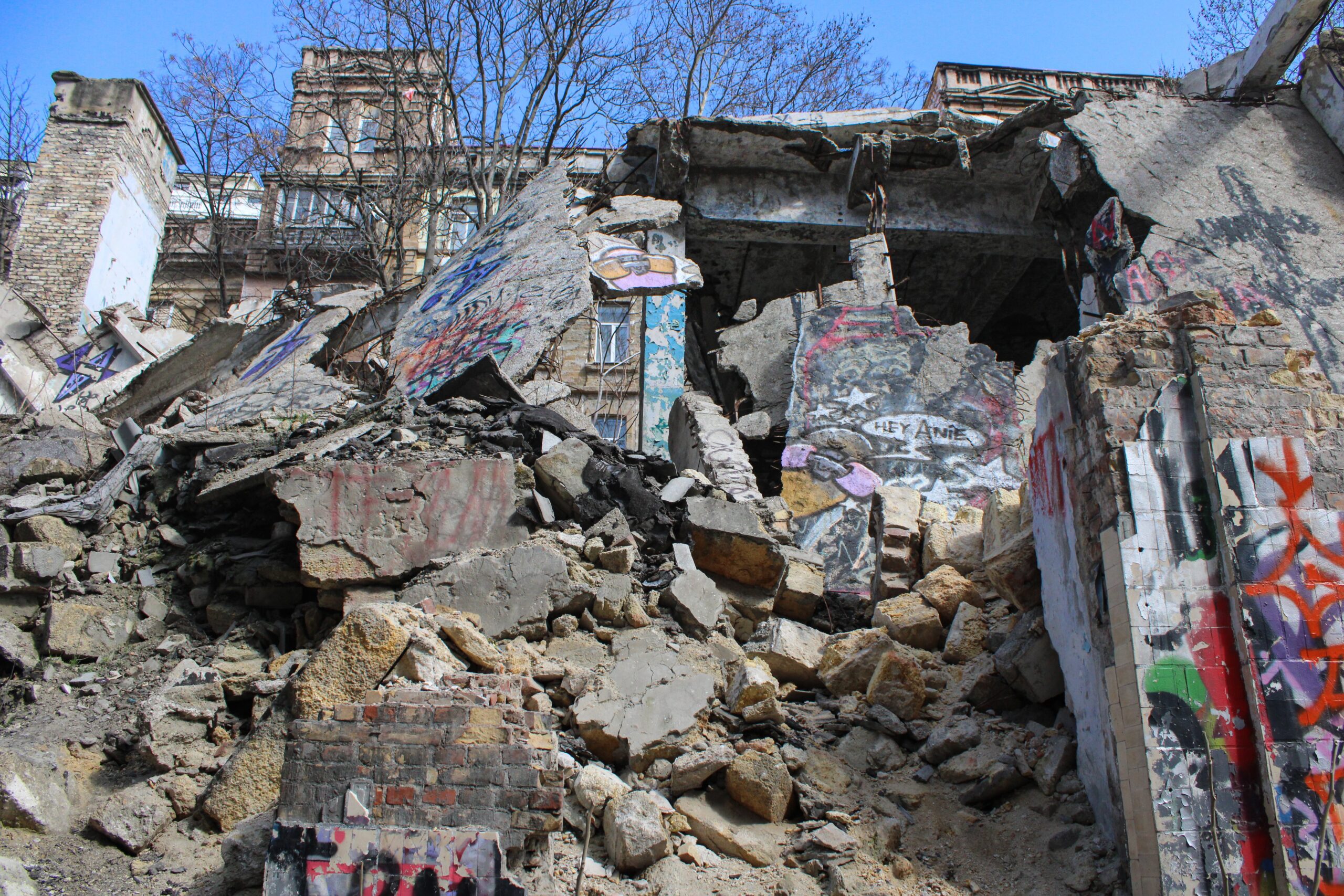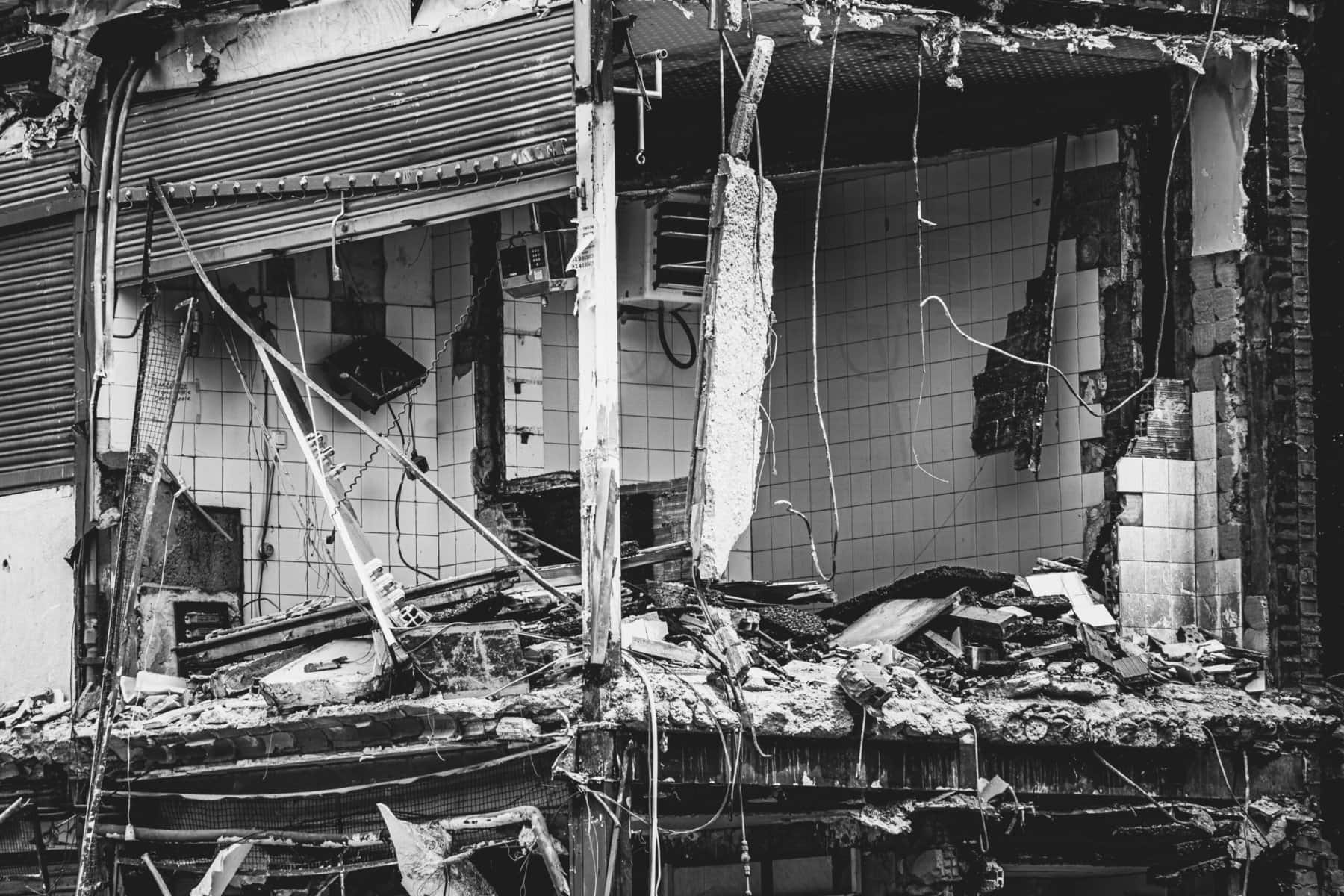Living in a region prone to earthquakes can be quite unnerving, especially if you rely on a well for your water supply. It’s crucial to stay informed and well-prepared, but where do you start? In this article, we will explore various resources available for well owners in earthquake-prone regions. Whether you’re looking for information on how to assess the safety of your well or seeking guidance on retrofitting measures, we’ve got you covered. Let’s take a closer look at the tools and information that can help you safeguard your water source amidst the unpredictable tremors of the earth.
Understanding Earthquakes and Their Impact on Wells
Earthquakes are natural phenomena that occur when the Earth’s crust shakes due to the release of energy. This energy can result in the sudden movement of the ground, leading to the destruction of buildings, infrastructure, and sometimes, wells. Understanding the causes of earthquakes and how they can impact wells is crucial for well owners in earthquake-prone regions.
What causes earthquakes?
Earthquakes can be triggered by various factors, including tectonic plate movements, volcanic activity, and human-induced activities such as mining or drilling. Tectonic plate movements are the most common cause of earthquakes. When these massive plates that make up the Earth’s surface collide or slide past each other, it can generate incredible amounts of energy, leading to seismic vibrations.
How are wells affected by earthquakes?
Wells can be susceptible to damage during earthquakes due to the shaking of the ground. The severity of the impact depends on various factors, including the distance from the epicenter, the magnitude of the earthquake, the soil type, and the construction of the well itself.
During an earthquake, the ground motion can cause the shifting or settling of soil around the well, potentially leading to the displacement or collapse of the well structure. Additionally, the shaking can damage pipes, pumps, and other components of the well, disrupting the water supply. Contamination of well water can also occur if the earthquake causes damage to nearby sewage systems or introduces sediment and pollutants into the groundwater.
Protecting your well from earthquake damage
While it may not be possible to completely eliminate the risk of earthquake damage to your well, there are steps you can take to minimize the potential impact. Here are some measures you can consider:
Consult professionals: Seek guidance from well drilling and construction companies or geotechnical engineering firms that have expertise in earthquake-resistant well design and construction. They can provide recommendations based on the specific soil conditions and seismic activity in your area.
Secure well components: Ensure that your well’s components, such as pipes, pumps, and pressure tanks, are securely fastened and properly anchored. This can help prevent them from dislodging or sustaining damage during an earthquake.
Protect access points: Install protective barriers or covers over well access points, such as wellheads or manholes, to prevent debris or sediment from entering the well.
Regular maintenance: Schedule regular inspections and maintenance for your well to identify any potential vulnerabilities or issues. Promptly address any structural or mechanical problems to minimize the risk of damage during an earthquake.
Consider retrofitting: If you live in a high-risk earthquake zone, you may want to explore retrofitting options for your well. Retrofitting involves reinforcing the well structure to make it more resistant to seismic activity. Consult with professionals to determine the feasibility and effectiveness of retrofitting for your specific well.
Taking proactive measures to protect your well from earthquake damage can help ensure a reliable and safe water supply even in the face of seismic events. It is always advisable to seek expert advice and stay informed about local building codes and regulations related to well construction and earthquake safety.
Government Agencies and Organizations
Various government agencies and organizations provide valuable resources, guidance, and support for well owners in earthquake-prone regions. These entities work to promote awareness, preparedness, and response to earthquakes and their impact on water infrastructure.
United States Geological Survey (USGS)
The United States Geological Survey (USGS) plays a vital role in monitoring and studying earthquakes across the United States. They provide real-time earthquake monitoring, historical data, and educational resources that can help well owners understand earthquake hazards. Through their Earthquake Hazards Program, the USGS offers valuable information on seismic activity, fault zones, and ground shaking intensity maps, which can aid in assessing the earthquake risk specific to your area.
Federal Emergency Management Agency (FEMA)
FEMA is a federal agency that coordinates disaster response and recovery efforts in the United States. They offer resources and assistance for homeowners, including those with wells, to prepare for and respond to natural disasters such as earthquakes. FEMA’s earthquake resources provide valuable information on creating emergency plans, securing your property, and accessing financial assistance for recovery.
State Departments of Water Resources
Many states have dedicated Departments of Water Resources or similar agencies that oversee the regulation, management, and protection of water resources within their jurisdiction. These departments often provide educational materials, guidelines, and resources specific to well owners in earthquake-prone regions. Contact your state’s Department of Water Resources to access information tailored to your local area.
Local government agencies
Local government agencies, such as county or city offices, may also offer support and resources for well owners in earthquake-prone regions. These agencies are typically involved in emergency planning and response efforts, and they can provide localized information on earthquake preparedness and resources available in your community.

Educational Resources
Knowledge is key to effectively preparing for and mitigating the impact of earthquakes on wells. Several educational resources are available to help well owners gain a better understanding of earthquake hazards and implement preventive measures.
USGS Earthquake Hazards Program
The USGS Earthquake Hazards Program offers a wealth of educational resources tailored to diverse audiences, including homeowners, educators, and community leaders. Their website provides access to publications, maps, videos, and interactive tools that explain earthquake science, safety measures, and mitigation strategies.
FEMA Earthquake Resources
FEMA’s website offers comprehensive earthquake-related resources and educational materials. Their publications cover various topics, ranging from earthquake safety in homes to guidelines for securing water infrastructure. Well owners can benefit from FEMA’s guidance on protecting wells and maintaining a safe water supply in the event of an earthquake.
Online courses and webinars on well maintenance and safety
Several organizations and universities provide online courses and webinars on well maintenance, safety, and earthquake resilience. These resources often cover topics such as well inspection, water quality testing, and disaster preparedness. Participating in these educational opportunities can enhance your knowledge and equip you with the necessary skills to protect your well in earthquake-prone regions.
Well Maintenance and Inspection
Regular maintenance and inspections are essential for the proper functioning and longevity of wells. By implementing a proactive maintenance routine, well owners can identify vulnerabilities and address them promptly. Additionally, regular inspections can help ensure the quality and safety of well water.
Regular well inspections
Schedule regular inspections by trained professionals to assess the condition of your well. Inspections typically involve checking the structural integrity of the well, evaluating the functionality of well components, and identifying any signs of damage or deterioration. Through these inspections, potential issues can be detected early on and addressed before they escalate.
Testing well water quality
Regular water quality testing is crucial for ensuring the safety and potability of well water. Well owners should conduct periodic tests to assess the chemical, physical, and microbiological parameters of their water. By analyzing the water quality, potential contamination sources can be identified and appropriate measures can be taken to mitigate risks.
Addressing well vulnerabilities
Based on the results of inspections and water quality tests, take necessary actions to address any vulnerabilities identified. This may include repairing damaged components, reinforcing weak areas, or implementing corrective measures to prevent contamination. It is important to consult with professionals experienced in earthquake-resistant well design and construction to ensure the effectiveness of these measures.
By prioritizing maintenance and inspections, well owners can mitigate the risks associated with earthquakes and other unforeseen events. Regular monitoring of wells and water quality can provide peace of mind knowing that your water supply is safe and reliable.

Emergency Preparedness
Preparing for emergencies, including earthquakes, is crucial for the well-being of both individuals and communities. Well owners should develop an emergency response plan, stock essential supplies, and understand evacuation procedures to ensure their safety during seismic events.
Creating an emergency response plan
Developing an emergency response plan specific to your well and property can help you respond swiftly and effectively during an earthquake. The plan should include procedures for shutting off power to the well, locating and shutting down water valves, and contacting professionals for assistance. Clearly communicate the plan to all family members and ensure everyone knows how to respond in case of an earthquake.
Stocking emergency supplies
Maintain a well-stocked emergency supply kit that includes essential items to sustain you and your family in the aftermath of an earthquake. Key items to include are bottled water, non-perishable food, first aid supplies, flashlights, batteries, and a portable radio. Additionally, consider having backup water storage containers in case the well becomes temporarily inaccessible or contaminated.
Understanding evacuation procedures
Familiarize yourself with evacuation procedures specific to your area. Identify safe locations where you and your family can seek refuge in the event of a severe earthquake. Understand the routes and transportation options available for evacuation, and keep important documents and emergency contact information readily accessible.
By being prepared, well owners can minimize the potential impact of earthquakes on their well and ensure the safety and well-being of their families.
Community Support and Networking
Engaging with the well owner community and participating in local workshops and meetings can provide valuable insights, support, and collective problem-solving opportunities. Consider the following ways to connect with others and benefit from their experiences:
Well owner associations
Look for well owner associations or organizations in your region that focus on earthquake preparedness and resilience. These groups often organize informative events, provide resources, and facilitate networking opportunities among well owners. By joining such associations, you can learn from other well owners’ experiences, gain access to expert advice, and contribute to community-driven initiatives.
Local community meetings and workshops
Attend local community meetings and workshops that address earthquake preparedness and resilience. These events, often organized by government agencies or community organizations, offer valuable information on emergency planning, well maintenance, and disaster response. Additionally, they provide excellent opportunities to connect with experts and fellow well owners in your area.
Online forums and discussion groups
Join online forums and discussion groups focused on well ownership, earthquake preparedness, and water infrastructure resilience. These platforms allow well owners from diverse regions to share experiences, exchange knowledge, and seek advice. Online communities also serve as platforms for discussing emerging trends, technological advancements, and best practices in earthquake resilience.
By actively engaging with the well owner community, you can tap into a collective pool of knowledge, support, and resources that can enhance your earthquake preparedness and response strategies.

Insurance and Financial Assistance
Earthquake damage can have significant financial implications for well owners. Understanding insurance coverage options and available financial assistance programs is crucial for mitigating the financial burden associated with earthquake-related damages and repairs.
Insurance coverage for earthquake damage
Review your homeowner’s insurance policy to determine its coverage for earthquake-related damages to wells and water infrastructure. While standard homeowner’s insurance policies may not cover earthquake damage, additional coverage options specifically for seismic events may be available. Contact your insurance provider to inquire about earthquake insurance and its applicability to your well.
Applying for disaster assistance programs
In the aftermath of an earthquake, federal and/or state disaster assistance programs may be activated to provide financial support to affected individuals and communities. These programs can help cover the costs of repairing wells, restoring water supplies, and addressing other earthquake-related damages. Familiarize yourself with the eligibility criteria, application process, and deadlines for these programs to ensure timely access to financial assistance.
Well maintenance grants and loans
Some government agencies, non-profit organizations, or local utilities offer grants or low-interest loans specifically for well-related maintenance and improvements. These financial resources can help well owners implement earthquake mitigation measures, upgrade well components, or invest in water quality testing and treatment. Explore opportunities for well maintenance grants and loans through relevant local or state agencies.
By exploring insurance coverage options and financial assistance programs, well owners can alleviate some of the financial burdens associated with earthquake damage and enable prompt recovery and repair.
Alternative Water Sources
In the event of an earthquake that interrupts or contaminates your well water supply, it is important to have alternative water sources available. Consider implementing the following options:
Rainwater harvesting systems
Rainwater harvesting systems can be an excellent source of water during periods of well disruption. These systems collect and store rainwater from rooftops or other catchment surfaces, filtering it for immediate use or storage for future needs. Properly designed rainwater harvesting systems can provide a sustainable and reliable source of water, even in the absence of a working well.
Water storage tanks
Installing water storage tanks can serve as a backup supply in the event of a well failure. These tanks can be filled prior to an earthquake or other emergencies and can provide an interim water source until regular access to the well is restored. Ensure that the tanks are securely anchored and protected against contamination to maintain water quality.
Neighboring water sources
Establishing relationships with neighbors who have access to alternative water sources, such as municipal water supply or other wells, can be beneficial during an earthquake. In emergency situations, collaborating with neighbors to share water resources, either directly or through established community networks, can be a temporary solution until your own well is restored.
Before implementing alternative water sources, familiarize yourself with local regulations and permitting requirements, if applicable. Ensure that the water from these sources is safe for consumption by implementing appropriate treatment measures or consulting with water quality experts.

Professional Services
Well owners can benefit from engaging professional services for various aspects of well maintenance, repair, and seismic resilience. Consider the following services that can contribute to the longevity and safety of your well:
Well drilling and construction companies
Consult well drilling and construction companies with expertise in earthquake-resistant well design and construction. They can assess your existing well, evaluate its vulnerability to seismic activity, and propose retrofitting or reinforcement solutions to enhance its durability. Additionally, these professionals can assist in the installation of new wells that take earthquake resilience into account from the outset.
Geotechnical engineering firms
Geotechnical engineering firms specialize in assessing soil conditions and seismic hazards that can impact structures, including wells. Engaging their services can help you understand the specific geological and geotechnical aspects of your property and how they can affect your well’s stability. Geotechnical engineers can provide valuable recommendations for mitigating seismic risks and strengthening the well’s foundation.
Well pump repair and maintenance
Regular maintenance and repair of well pumps is essential for sustained water supply and reliability. Engage well pump repair and maintenance professionals to ensure your pumps are functioning optimally and to address any issues promptly. Regular servicing can contribute to the early detection of potential problems and can minimize the likelihood of pump failure during an earthquake or other emergencies.
By leveraging the expertise of professionals in well-related services, well owners can enhance the seismic resilience of their wells and ensure the well’s long-term functionality.
Conclusion
Understanding earthquakes and their impact on wells is crucial for well owners in earthquake-prone regions. By comprehending the causes of earthquakes and recognizing how they can affect wells, well owners can take appropriate measures to protect their water supply. Engaging with government agencies, accessing educational resources, maintaining wells, preparing for emergencies, and seeking professional assistance are all vital steps in ensuring the resilience and sustainability of wells in the face of seismic events. By implementing preventative measures, well owners can minimize the impact of earthquakes, safeguard their water supply, and maintain the well-being of their communities. Stay informed, take proactive measures, and prioritize the safety and longevity of your well in earthquake-prone regions.

